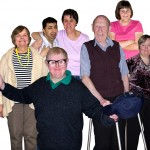
Autonomy is defined as the freedom to determine one’s own actions or behaviour. It is a value at the heart of health and social care support and those supporting people with learning disabilities are constantly striving to maintain and indeed increase the autonomy of those they provide help to. The authors of this Netherlands based [read the full story…]








